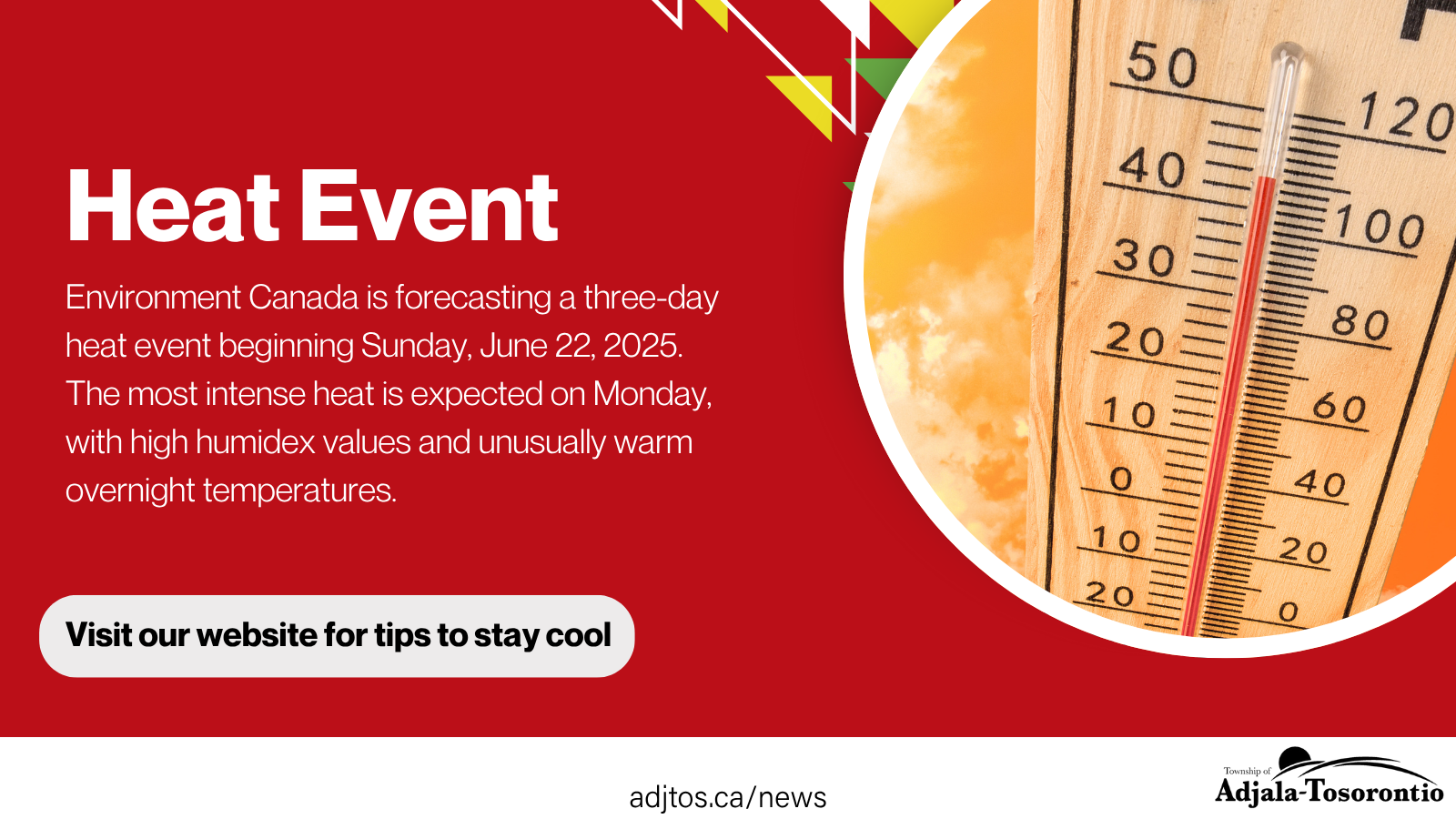Environment Canada Heat Event

Environment Canada forecasted a multi-day heat event expected to begin Sunday and continue through at least mid-week, with daytime highs reaching 31°C to 33°C and humidex values potentially in the low 40s. Power outages are possible due to power draw.
High heat can be dangerous to your health and may lead to heat-related illnesses. Please take steps to stay safe, stay hydrated, and stay cool.
Learn how to recognize the signs of heat-related illness and get practical tips to protect yourself and your loved ones.
Staying healthy in the heat
When it is hot outside, it can be easy to become dehydrated or suffer from a heat-related illness. Learn how you can beat the heat, to keep yourself and your family safe and healthy:
Heat stroke is a life-threatening medical emergency. Call 9-1-1 or other emergency medical services as soon as you suspect or see the signs of heat stroke. Heat stroke signs include high body temperature, confusion, dizziness/fainting and flushed skin. Learn more about heat stroke by visiting the Government of Ontario’s Extreme Heat page.
Stay hydrated
Dehydration may occur more easily during a heat event. Drink fluids, especially water, before feeling thirsty. Sugary or alcoholic drinks can cause you to lose more body fluid. Also avoid very cold drinks, because they can cause stomach cramps.
Stay cool
- Dress in light-coloured, loose-fitting clothing, wear a hat and apply sunscreen.
- If feasible, open your windows at night and create a cross-breeze. Close awnings, curtains, or blinds during the day to reduce heat indoors.
- If you have an air conditioner, set it to a comfortable temperature. For those at risk during extreme heat events, sustained exposure to indoor environments over 26°C can pose a risk to health.
- Reschedule activities as needed to avoid being out when it’s hottest.
- Avoid using the oven or other appliances that will add heat to your home.
- If you must do physical activity in the heat, take extra breaks, remove excess clothing, and keep hydrated.
Health checks for those at-risk
If possible, take a moment to check in on friends, family, or neighbours—especially those more vulnerable during extreme heat, such as individuals without working air conditioning. Indoor temperatures can rise quickly and may be hotter than they feel, so it’s helpful to ask about the actual thermostat reading or pay a quick in-person visit.
While fans can offer some relief, they are not always enough to cool someone down effectively. Air conditioning is the most reliable way to stay safe in extreme heat.
And remember—never leave people or pets in parked vehicles. Temperatures inside can climb dangerously fast.
If individuals need someplace to cool down, visit our neighbouring communities in Essa Township, Town of New Tecumseth, and Clearview Township for their cooling centres.
Be prepared
- Consider having a water supply ready, as well as ice to keep your water cold.
- If possible, have an air conditioner in your home, or know where you can access air-conditioned spaces for cooling.
- Identify a cooler space in your home and prepare it so you can sleep there at night, even if it is not your bedroom.
- Know the symptoms of heat-related illness and keep the above safety tips in mind
- Check in on individuals who may be more susceptible to heat, preferably twice a day. Watch local weather forecasts and alerts:
- Check the Environment and Climate Change Canada’s Weather website for information regarding weather and humidex reports.
- Check Air Quality Ontario’s website for information regarding air pollution.












